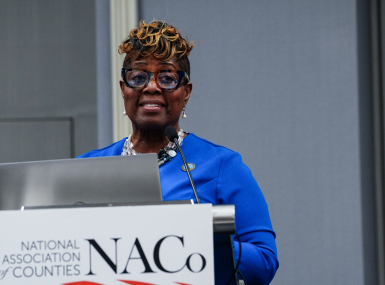Congress holds hearing to examine the impact of COVID-19 on child care industry
Author
Upcoming Events
Related News

Key Takeaways
On March 2, the U.S. House Select Subcommittee on the Coronavirus Crisis held a hearing on the unique challenges that families, caregivers and the child care workforce have faced throughout the COVID-19 pandemic. Witnesses discussed key areas of vulnerability exacerbated by the pandemic and federal strategies to strengthen the nation’s child care sector. County governments play a significant role in local child care systems and encourage our federal partners to take action to stabilize this critical industry.
Among many of the challenges facing the child care sector, the most pressing include limited slots and exorbitant costs for families. At the same time, low profit margins prevent providers from offering competitive pay and benefits for employees. Low compensation coupled with a high demand workplace environment leads to stress, burnout and turnover, resulting in a steady decline in the child care workforce that the pandemic has only further accelerated. Today, the child care workforce remains 10 percent below pre-pandemic levels, hampering local recovery as parents struggle to find affordable options for their children.
While families and providers received crucial emergency support from federal COVID-19 relief packages, full recovery cannot occur without significant, long-term financial investments from states and the federal government. Counties support swift federal action to ensure high-quality child care is more affordable and available to our residents while ensuring child care workers receive adequate compensation. NACo will continue to work with Congress and other federal agency partners to develop policies that strengthen efforts to support families, child care infrastructure and the child care workforce.
To watch a webcast of the hearing, click here.
Additional Resources
Resource
NACo Legislative Toolkit: Federal Policy Levers for Stabilizing the Child Care Industry

Related News

Congress seeking ‘common-sense solutions’ to unmet mental health needs
Rep. Andrea Salinas (D-Ore.): “Right now, it is too difficult to access providers … and get mental health care in a facility that is the right size and also the appropriate acuity level to meet patients’ needs.”

Prince William County transforms crisis care through "No Wrong Door" approach
Prince William County, Va.’s Crisis Receiving Center is bridging the gap between emergency room care and traditional outpatient care in behavioral crisis response and reducing burden on local law enforcement and hospitals.

Federal-level child welfare priorities center on supporting foster youth, families
Child welfare experts outlined current priorities at the federal level, including better supporting foster care youth who age out of the system and recruiting more foster parents, at NACo’s Human Services and Education Policy Steering Committee meeting.
